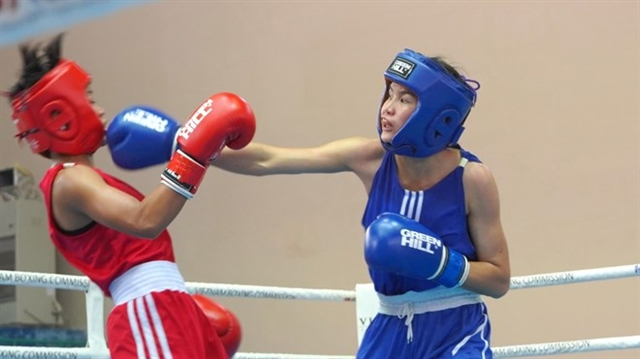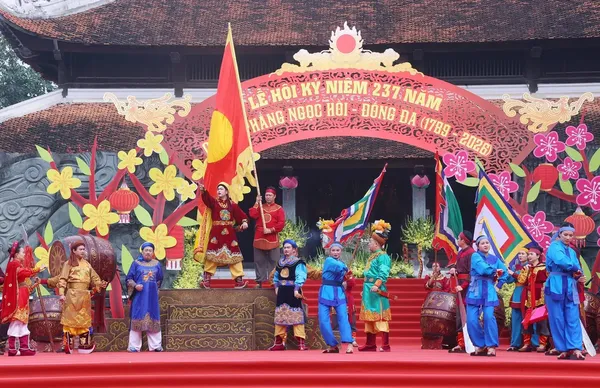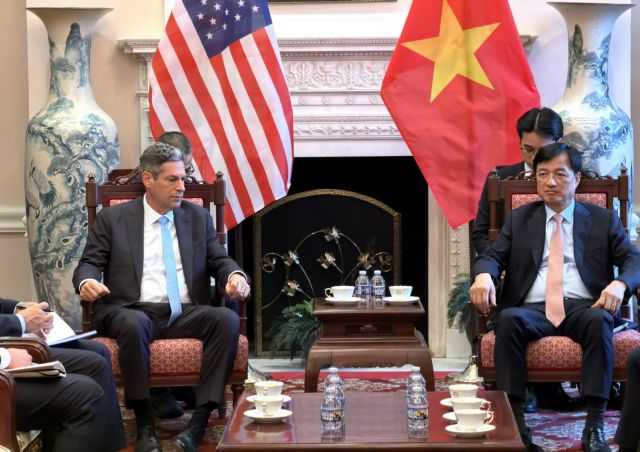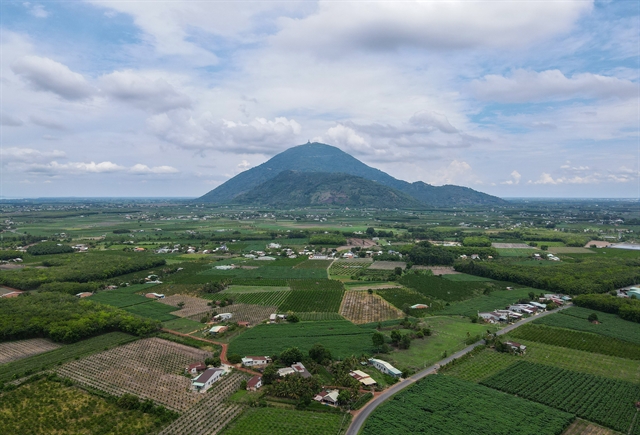 Society
Society
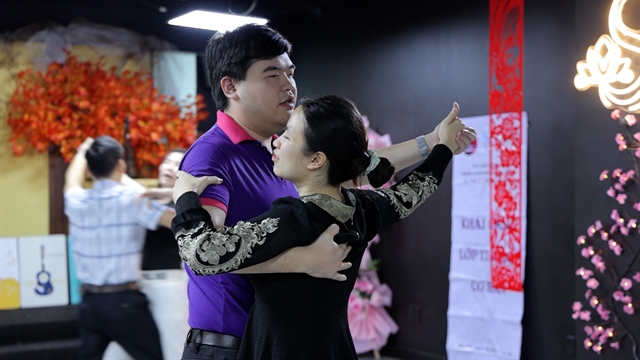
Dialysis patients at Hà Nội-based Bạch Mai Hospital have seen their difficulties increase in recent days, because not only do they have to self-quarantine but also follow medical treatment and take measures to avoid the SARS-CoV2 virus.
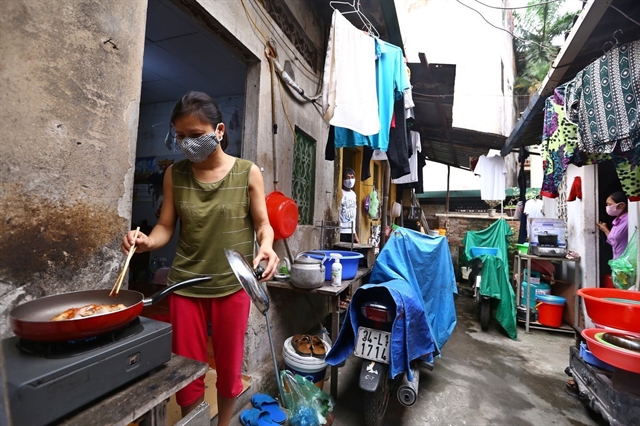
|
| A woman cooks her meal in 'dialysis patient alley' in Lê Thanh Nghị Street, Hà Nội. — VNA/VNS Photo Minh Quyết |
HÀ NỘI — Dialysis patients at Hà Nội-based Bạch Mai Hospital have seen their difficulties increase in recent days, because not only do they have to self-quarantine but also follow medical treatment and take measures to avoid the SARS-CoV2 virus.
However, they are not alone.
The Government, local administration and relevant agencies have put in place a lot of support for the patients, following the Government’s slogan “no one left behind” in the fight against the pandemic.
Mai Anh Tuấn, 43, of Ba Vì District, Hà Nội, who currently temporarily resides in alley No 121, Lê Thanh Nghị Street, Hai Bà Trưng District’s Đồng Tâm Ward, said he was very busy lately.
Tuấn, head of “dialysis patient alley”, said he was assigned to monitor the daily movements of the dialysis patients during their period of quarantine and report to the authorised agencies. The quarantine started on March 30.
He also had to notify the dialysis patients so they could receive free rice, oil, fish sauce, milk and face masks from the ward authorities, he said.
The alley is called “dialysis patient alley” because there are 87 people renting rooms close to the hospital for dialysis treatment, the Hà Nội Mới (New Hà Nội) online newspaper reported.
Phạm Xuân Trường, 67, of the northern province of Nam Định, said this year was the sixth year he has undergone dialysis at the hospital.
Queuing in line to receive rice on Wednesday afternoon, Trường said he felt touched when he and his neighbours received a lot of care from the local authorities.
Đoàn Thị Lực, 53, from the northern province of Bắc Giang, said at first, when hearing information about the quarantine, she was very worried.
The first thing she did was go to the market and buy more rice, she said. She was worried about having nothing to eat.
Now, she felt relieved after the local authorities sent a lot of rice, she added.
“My husband and children in my hometown were very worried for me, but I said don’t worry, the local authorities are giving us a lot of support,” she added.
Picked up in army vehicles
The dialysis patients are believed to have low resistance to diseases. Thus, the ward’s medical sector has co-operated with the district’s military force to arrange army vehicles to take the dialysis patients to the hospital every day.
Bích Quyền, a medical worker of the ward, who was in charge of taking the dialysis patients to the hospital, said there were 4-5 military vehicles to take them depending on the schedule.
Each vehicle could carry about 20 patients. The patients were given a special card to go in and out of the hospital, she said.
After the patients were dropped at the hospital’s gate on Giải Phóng Street, the security guards would measure their temperature and sterilise them.
The patients then use a separate entrance to the hospital’s Department of Nephrology. The walkway is open between 6am and 10pm every day.
Trần Thị Huệ, a dialysis patient living in the alley, said despite the COVID-19 pandemic, the hospital and the local authorities had taken prompt measures to protect the patients, especially those undergoing dialysis.
“I feel safe to continue receiving medical treatment here,” she said.
Vũ Thị Ngát, 63, Trường’s wife, said her husband had been taken to the hospital by the army vehicle for dialysis every day.
“It keeps him safe and we are thankful for that,” she added.
Lê Khánh Giang, chairman of the People’s Committee of the ward, said they had made a list of food that the patients in the alley needed and sent it to a supermarket. The food was sent to the patients every day for free.
“Firstly, we sent them rice, oil, fish sauce, milk and masks. We would send them some dried food so that they would have more options for their meals in the coming days,” Giang said.
The Việt Nam Fatherland Front Committee has provided one tonne of rice; the district administration has donated VNĐ1 million (US$42) for each patient; and the ward administration has donated VNĐ200,000 ($8.4) for each patient to support them during the 14-day self-quarantine.— VNS

